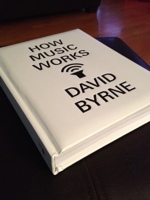In another lifetime* when I hung out in bars all the time, I came up with this idea** of The Jukebox Game. Here’s how it works:
You and a friend or friends choose a dollar amount. I’d suggest between two and four dollars per player.
Player 1 puts in a dollar and chooses the allotted number of songs. He or she is awarded points based on the reactions of strangers in the bar to the songs played (friends in your drinking party do not count). Points are awarded as follows:
Head bobbing, foot tapping, hand clapping: 1 point
Singing along with lyrics (lip-sync only): 2 points
Spontaneous affirmations of musical selection: (“This song rules!” “Bon Jovi, fuck yeah!”): 3 points
Singing along with lyrics (out loud): 5 points per group of patrons (2 bonus points if people throw their arms around each other and sway)
Note: If a group of three people starts singing you only get five points, not 15, but if three people sitting by themselves all start singing separately, that’s 15. Same with the bonus: each swaying group is two bonus points. If two groups of three people start singing and swaying that’s 5 + 5 + 2 + 2. If two strangers start singing and swaying, it’s still 5 + 5 + 2 + 2.
Actual dancing: 10 points per person (including groups but you can only collect if the bar does not have an actual dance floor; points awarded for spontaneous dancing only)
After player 1’s songs are finished, player 2 puts a dollar into the jukebox and tallies up the points based on the patrons’ reactions to the songs played. Additional players follow the same pattern. No player may repeat a song played by a previous player, but artists may be repeated. Play alternates until the chosen dollar amount is spent by all players. The person with the most points wins.
Why alternate dollars? Simple. This rule prevents latter players from acquiring an advantage over earlier players because the patrons in the bar and significantly more inebriated. If player 1 played five dollars worth of songs, we’re talking around an hour of drinking before player 2 starts. An hour more of inebriation generally produces more singing and dancing.
Now, when I came up with this game Internet jukeboxes weren’t a thing. Internet jukeboxes completely change the nature of this game. With a regular jukebox, everyone has the same limited inventory to work with so it’s a challenge. Playing with an Internet jukebox is like everyone playing the same game but with cheat codes on. Play the game right and use a real jukebox with finite selections.
Lastly, I have never actually played this game. I just created the point totals. No idea if it’s actually a workable game. If you play it over the weekend, I’d love to hear how it goes.
* Roughly 2004-2008
** Like I said, this was another lifetime ago so this may have been the result of a barroom conversation I had with a few people but I’m the only one who bothered to write down the rules. If you were present during the genesis of this game – it was probably during a Chicagoist staff happy hour – and contributed to it, let me know.



